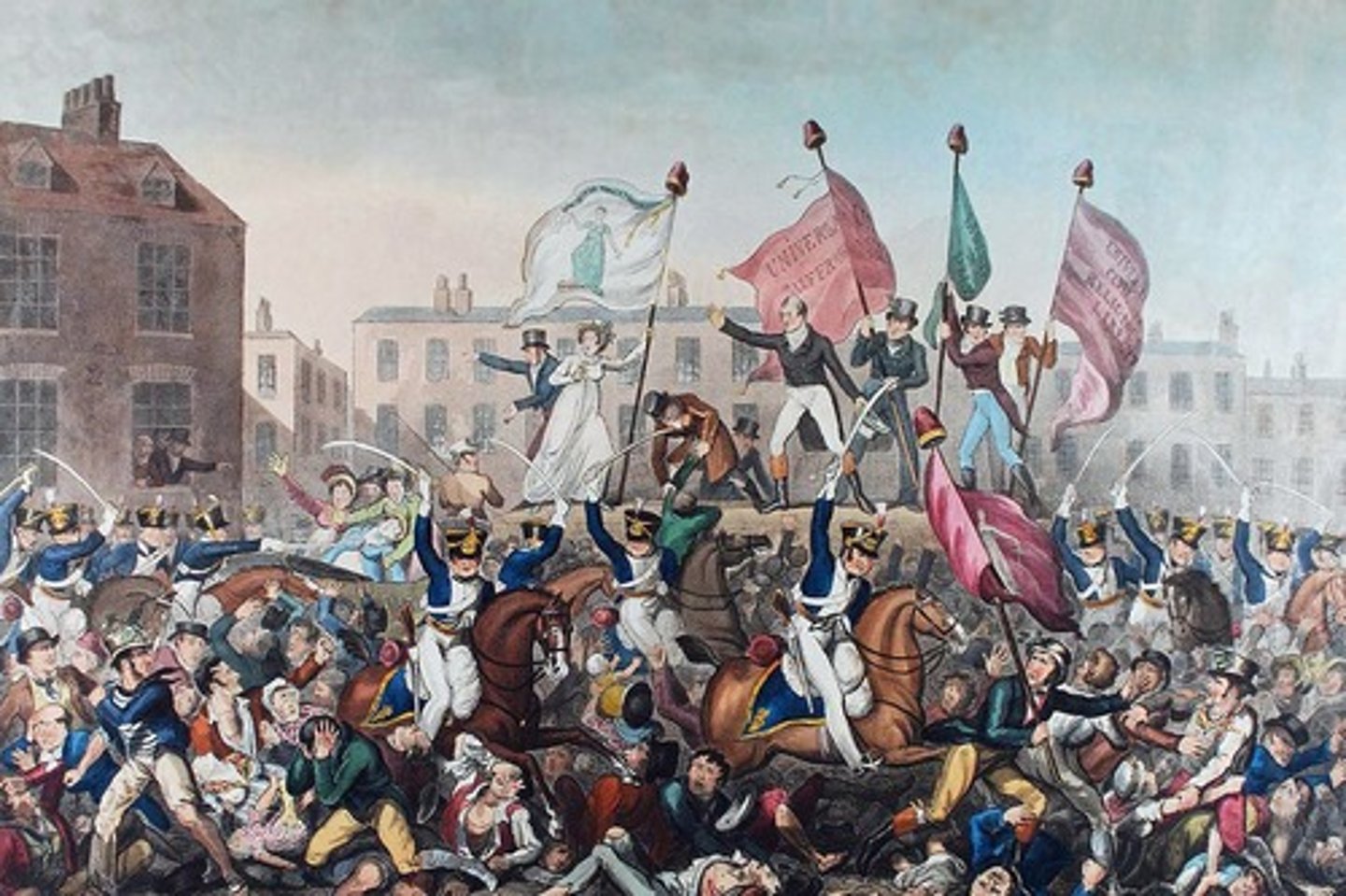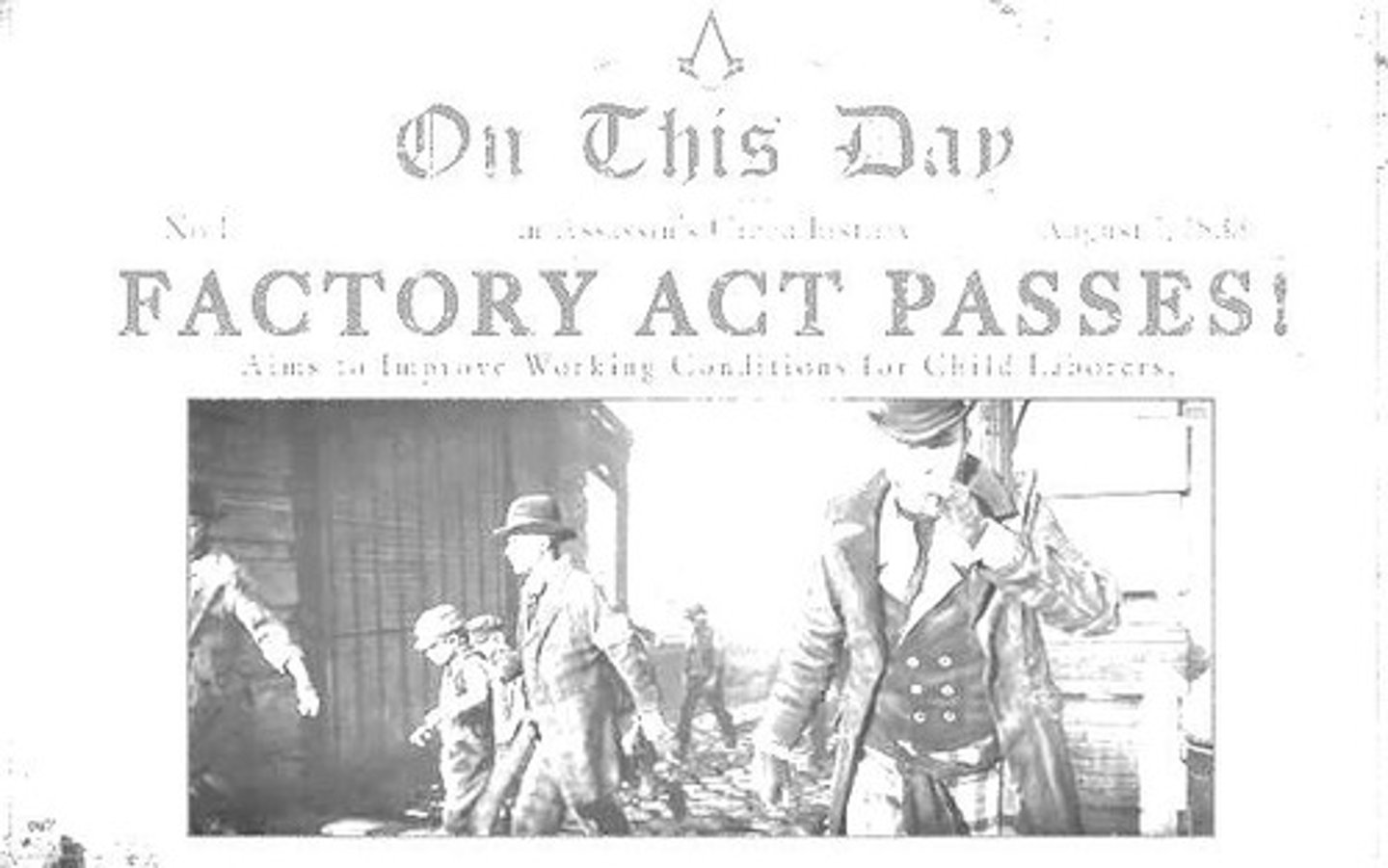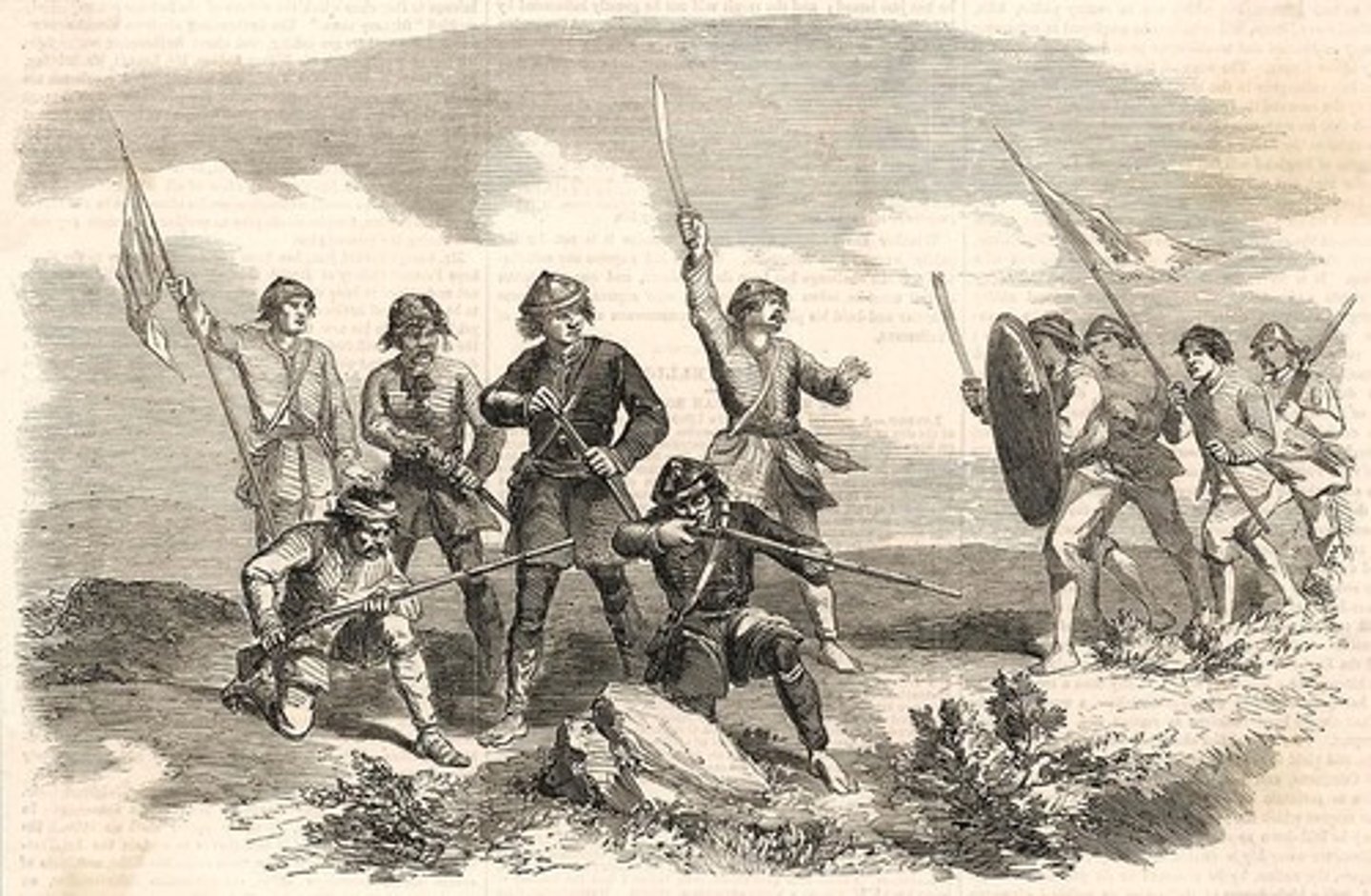Rebels and Change in the 19th Century World
1/109
There's no tags or description
Looks like no tags are added yet.
Name | Mastery | Learn | Test | Matching | Spaced | Call with Kai |
|---|
No analytics yet
Send a link to your students to track their progress
110 Terms
Industrial Revolution
Technological shift to machine-based manufacturing.
Hong Xiquan
Leader of the Taiping Rebellion in China.
Adam Smith
Economist known for capitalism principles.
Capitalism
Economic system based on private ownership.
Liberal Imperialism
Political ideology promoting empire expansion.
Henry Hunt
British reformer advocating for political rights.
George Washington Williams
African American historian and author.
Peterloo Massacre
1819 protest against political repression in England.

Congo Free State
Territory exploited by Belgium for resources.
Queen Laxmibai
Leader in the Indian Rebellion of 1857.
Taiping Rebellion
Massive civil war in China (1850-1864).
Sepoy Rebellion
Uprising against British rule in India (1857).
Overcrowded Cities
Urban areas with excessive population density.
Consumer Market
Economic system focused on luxury goods.
Long-term Investment
Financial commitment for future returns.
Short-term Survival
Focus on immediate basic needs.
Social Experience
Changes in community and lifestyle dynamics.
Economic Experience
Shifts in financial practices and markets.
Political Changes
Transformations in governance and power structures.
Colonization
Establishing control over foreign territories.
Technological Strength
Advantage gained through advanced machinery.
Resource-rich Countries
Nations abundant in valuable natural resources.
Industrial Revolution
Period of rapid industrial growth in the 19th century.
Capitalism
Economic system prioritizing private ownership and minimal government.
Adam Smith
Scottish philosopher, key figure in capitalism's development.
Free-market
Economic system with minimal government interference.
Bourgeoisie
Emerging middle class with investment power in capitalism.
Working class
Laborers facing poor conditions in factories.
Urbanization
Movement of people to cities for factory jobs.
Economic inequality
Disparity between wealthy bourgeoisie and poor workers.
Factory conditions
Awful working environments with no worker rights.
Overcrowded tenements
Poor living conditions in industrial cities.
Innovation
New ideas or technologies improving efficiency and life.
Investor
Individual providing capital for business growth.
Government regulation
Laws controlling business operations and practices.
Resistance
Opposition to colonial rule, ranging from violence to witness.
Second-class subjects
Colonized peoples treated inferior by political rulers.
Economic freedom
Business autonomy from government control.
Moral philosophy
Study of ethics and happiness in society.
Investment
Allocation of money with expectation of profit.
Social change
Transformations in society due to economic shifts.
Slums
Poor urban areas with inadequate living conditions.
Technological innovation
Advancements in technology driving industrial growth.
Life quality
Overall well-being influenced by economic and social factors.
Haves
Individuals with wealth and resources in society.
Have-Nots
Individuals lacking wealth and resources.
Voting Rights
Legal entitlement to participate in elections.
Henry Hunt
Radical leader advocating for workers' rights.
Peterloo Massacre
1819 violent suppression of peaceful protest in Manchester.
Collective Protest
Joint action by a group to express demands.
Factory Acts
Laws improving working conditions in factories.

Yeomanry
Local militia or police called to suppress protests.
Working Class
Social group of laborers and factory workers.
Women's Suffrage
Movement advocating for women's right to vote.
Industrialization
Process of developing industries in a country.
Political Reform
Changes aimed at improving government and society.
Union Formation
Workers organizing to protect their rights collectively.
Child Labor Laws
Regulations prohibiting child employment in factories.
Social Inequality
Disparity in wealth and opportunities among classes.
Eyewitness Journalists
Reporters who witnessed events firsthand.
Brutal Response
Violent actions taken by authorities against protestors.
Revolution of Reform
Movement aimed at enacting significant societal changes.
Mother Countries
Nations that control colonies and empires.
Colonized Peoples
Groups living under foreign domination in colonies.
Western Europe
Region experiencing significant reform and industrial growth.
Living Conditions
Quality of life and environment for individuals.
Qing Dynasty
Last imperial dynasty of China, ruling 1644-1912.
Opium Wars
Conflicts between China and Britain over opium trade.
Unequal Treaties
Agreements favoring foreign powers, undermining China's sovereignty.
Extraterritorial Rights
Legal immunity for foreigners in China under foreign laws.
Taiping Rebellion
Massive civil war (1850-1864) against Qing Dynasty.
Hong Xiuquan
Leader of the Taiping Rebellion, envisioned a utopia.
Heavenly Kingdom of Great Peace
Hong Xiuquan's ideal society with social reforms.
British Imperialism
Expansion of British influence and control over territories.
Social Hierarchy
Structured ranking of individuals within Qing society.
Agrarian Economy
Economy primarily based on agriculture and farming.
Foreign Intervention
Involvement of foreign powers in China's internal affairs.
Civil War
Conflict between factions within a country for control.
Military Support
Assistance from foreign armies to suppress domestic conflicts.
Western Influence
Impact of Western powers on China's governance and economy.
Modernization Imperative
Urgent need for China to adopt modern practices.
Republic of China
Government established after the fall of the Qing Dynasty.
Cultural Traditions
Long-standing customs and practices of Chinese society.
Economic Disruption
Significant disturbance to China's economy during conflicts.
Land Reforms
Changes in land ownership and distribution proposed by Hong.
Foreign Domination
Control exerted by foreign powers over China's affairs.
Industrialization Challenge
Struggle to develop industry amidst foreign pressures.
Qing Government Weakness
Inability to effectively manage internal and external pressures.
British East India Company
A trading company that controlled India.
Sepoy Rebellion
1857 uprising against British East India Company.

Queen Laxmibai
Symbol of resistance during the Sepoy Rebellion.
British Raj
Direct British government control over India.
Industrialization
Economic transformation increasing demand for raw materials.
Congo Free State
Leopold II's personal rule over the Congo.
King Leopold II
Belgian monarch responsible for Congo exploitation.
George Washington Williams
Journalist exposing atrocities in the Congo.
Forced labor
Coerced work imposed on local populations in Congo.
Congo's ethnic groups
Diverse communities with autonomous lifestyles pre-colonization.
Rubber and ivory
Key resources exploited in the Congo.
Social disruption
Disintegration of traditional structures due to colonial rule.